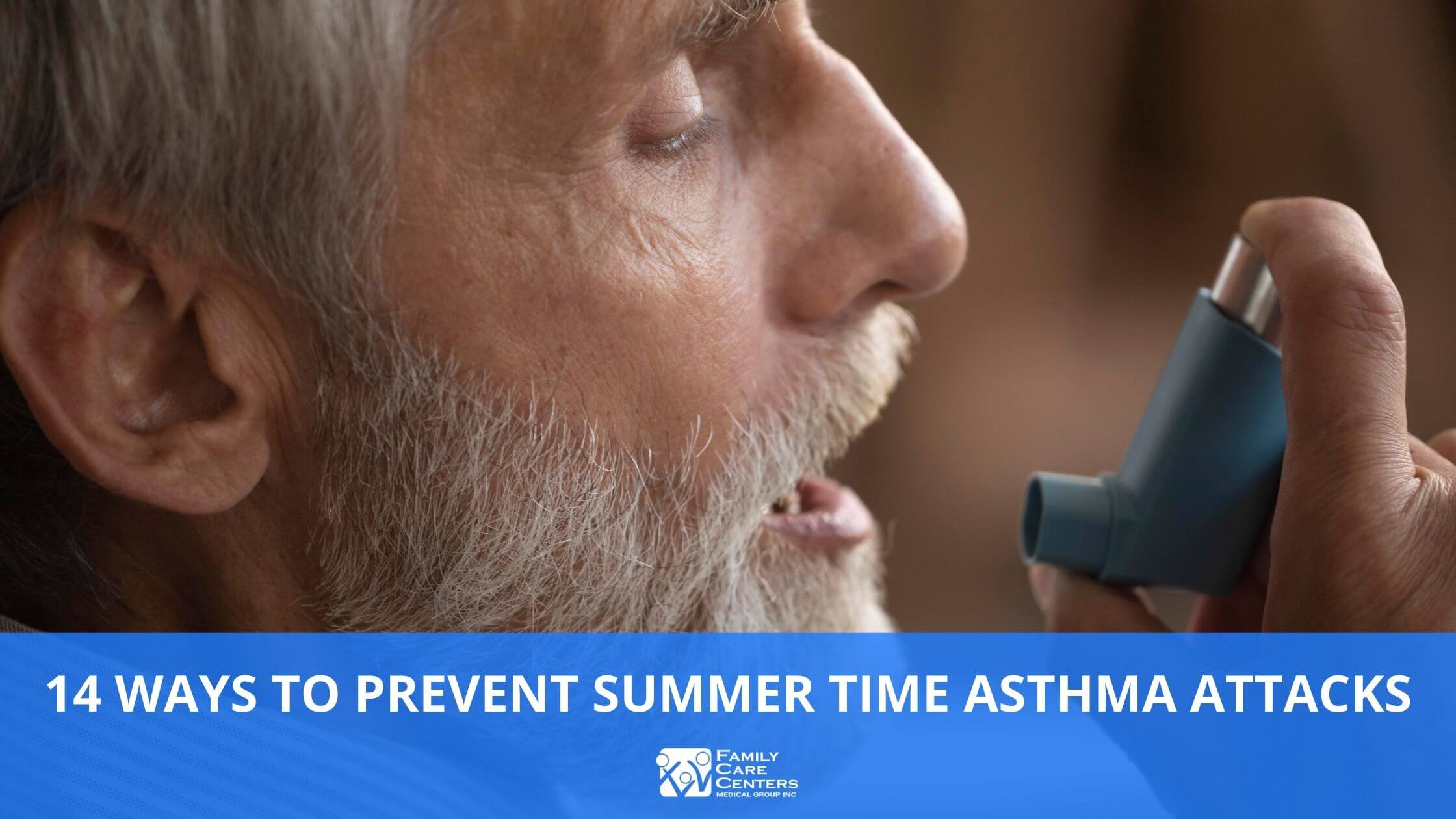

Fountain Valley Urgent Care Permanently Closed. We’re Here to Care for You at Our Other Locations.

Asthma, a chronic respiratory condition, is the inflammation and narrowing of the airways. Common summer asthma triggers, such as pollution, harsh sunlight, and breathing in hot air, can narrow your airways and lead to shortness of breath and coughing.
Summer is also a time when pollen is highly abundant in the environment. With so much pollen present, it can inflame your airways or travel into your nose and eyes, thus causing allergies and asthma. Ragweed pollen occurring during the late summer and early fall can also cause seasonal allergic rhinitis (hay fever) that increases the risk of an asthma attack.
During the summer months, the climate typically gets hotter and more humid... High temperatures and humidity together can make the air more stagnant, allowing it to trap pollutants and allergens that can irritate the airways.
Mold and mildew are fungi that trigger seasonal asthmatic symptoms. Mold-induced allergies are especially common in summer according to AAFA (Asthma and Allergy Foundation of America).
Summertime sees the increased activity of seasonal respiratory viruses that can cause excessive immune activation and airway inflammation. Common viruses that trigger asthma in different age groups are:
According to research, the risk of infection and death from the COVID-19 virus is similar for people with and without asthma. Asthmatic people are 14% less likely to get COVID-19 and associated hospitalization than the general population. While it is unclear why the COVID-19 risk is not high in asthmatic patients, researchers have said asthma treatments might be limiting the virus’s ability to impact the lungs.
However, people with moderate-to-severe or uncontrolled asthma still need to take care as they are more likely to get hospitalized from of COVID-19, as per the CDC.
Though pollution, allergies, viral infections, and high humidity trigger asthma during summer, knowing how to manage it will help you avoid asthma symptoms and keep your lungs healthy.
Here are some tips to prevent/manage your asthma during summer:
Airborne dust, pollen, and mold spores can irritate your lungs and cause asthma symptoms. So, when planning your outdoor activities, make sure to check the outdoor air quality levels and air pollution forecast in your community.
Citronella candles and bug sprays may keep mosquitoes out, but their strong odors can trigger asthma. Using unscented sprays and repellents is a good alternative to keep those bugs away and not trigger asthma symptoms.
Check your local pollen count before working in the garden. Plan your lawn and garden maintenance when the pollen count is low. Since pollen from freshly cut grass and airborne particles from fertilizers can also worsen your asthma symptoms, wear a mask to avoid inhaling them.
Use doctor-prescribed medications, including quick-relief medications, long-term asthma maintenance medications, and inhalers to reduce the symptoms of asthma and allergies.
Getting an allergy vaccination is one of the best ways to prevent summer allergies. These vaccinations reduce your immune system’s response to allergy triggers, thus preventing asthma symptoms.
Do not smoke and avoid being around second-hand smoke as it can make your asthma symptoms worse and medication less effective.
Pet dander is a common factor that can trigger asthma symptoms, so avoid sleeping with your pets.
If you are sensitive to hot weather or high humidity, use air conditioning in the house and car to stay cooler.
Wash your bedding in hot water at least every week to kill dust mites and other allergens. Learn more about the tips to sleep better with severe asthma at night.
High humidity during summer can trigger breathing difficulty and other asthma symptoms. Therefore, use a dehumidifier that decreases moisture in the air to ease your breathing.
With soaring temperatures, you don’t know when asthma symptoms can strike. So, take your regular inhaler with you all the time to prevent or relieve your asthma symptoms.
Dehydration can cause rapid or difficult breathing, thus triggering an asthma attack. Make sure to drink plenty of water and other beverages to stay hydrated when you are outside in hot weather.
Do not exercise outside when humidity levels or temperatures are high as it can trigger asthma attacks.
Visit your provider if you:
If you are looking for the best asthma and allergy care options or treatment, contact our urgent care center in Irvine, urgent care center in Fountain Valley ,and urgent care clinic in Costa Mesa.
Share Your Valuable Thought